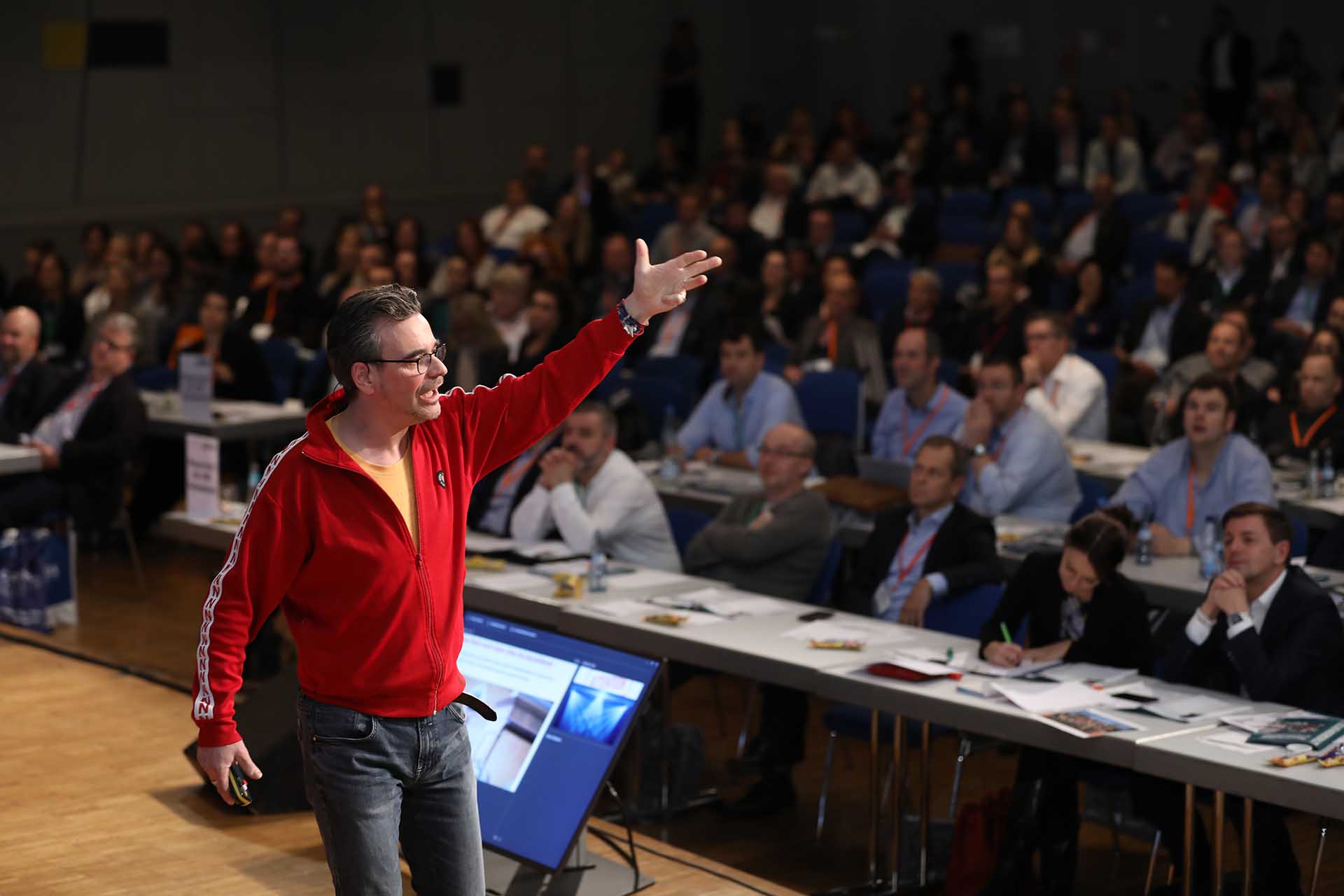The 4-day week brings 3-day free time
What is its appeal?
Two rules are certain about the 4-day week. They connect all models:
- 3 days off in a full-time job.
- Full salary as before the introduction of the 4-day week.
The exact distribution of which days are worked and for how long is implemented differently by companies: 39, 38, 36, 35, 34, 32 and 30 hours per week. Many close completely on Fridays. Other companies allow employees to choose internally whether Mondays or Fridays are free. In the crafts sector, several companies have a Monday-off team and a Friday-off team. They alternate every month, so that 26 times a year they have 4 days off.
Others keep it completely flexible, each month you can choose between a 4-day and 5-day week, whichever suits you better.
Rocco Funke, who works in the building drying trade in northern Thuringia, has the motto: “Mental health before profits.” In his business they work 32 hours instead of 40 on full pay. Turnover and profit have increased in 2022.
Timo Goekeler from GOEKELER Messtechnik southeast of Stuttgart says: “We’ve been doing this since 2020, and it rocks. We’ve managed to streamline processes so that we need less working time to do it.” His team gets the time gained: full-time is 34 hours of working time over 4 days with full pay. The company is in the top 3 in its industry worldwide.
The perception and reality of the 4-day week
“But the 4-day week doesn’t work in the skilled trades and in production” is something I often hear and read. While this is claimed fact-free, others have been doing it for a long time. They experience a number of positive effects: Employee turnover and sick leave decrease, the number of job applications, productivity, turnover and profits increase.
My book “4 Tage Woche” shows 151 practical examples in Germany, Austria and Switzerland, including 75 handicraft businesses, 17 in the hotel and catering industry, 13 in production and 46 in tax consultancy, agencies, software and care. These practical examples demonstrate some interesting findings, which I will briefly describe below.
Recreation and health
More rest leads to more health. In competitive sports, we know how important rest periods are for muscle building. In the context of work, this knowledge is still little used.
The costs of illness and absenteeism in companies flow far too little into the debate on working hours. All pilot projects for the 4-day week worldwide show an extreme increase in healthy people in the company. And that increases productivity, turnover and profits.
At the mechanical engineering company Wenzel Group in Wiesthal, the sickness rate has halved since the introduction of the 4-day week. “That is phenomenally good,” says HR Manager Daniel Eisler, whose expectations have been clearly exceeded. “You can see it in the people’s faces – they are much more relaxed!” says Heiko Reinosch, chairman of the works council.
The increased relaxation due to the longer weekends is measurable at ETH Elektrotechnik Hacker & Hammerschmid GmbH: in 2022 there was not a single sick day among the fourteen employees. The colleagues are in a better mood than before, and they contribute more. The good mood makes work more pleasant for everyone.
The sickness rate at GOEKELER Messtechnik GmbH is 0.5 %. From Vienna, Thomas Meyer, founder of the Vienna Office for Interaction, reports: “People are fitter and they are happier. That can be seen and also measured in figures. We have de facto hardly any sick leave.”
Especially among cooks, the sickness rate has dropped sharply since the introduction of the 4-day week at the 25hours Hotel in Cologne, General Manager Grit Pauling is pleased to report. At the sanitary company Schmauser in Bavaria, the number of sick days went down to zero after the start of the 4-day week, while motivation went up, reports WirtschaftsWoche.²
People and recruiting
In all discussions about the 4-day week, I was impressed by the clear, serious focus on people. They are the main focus:
- “How can I make sure that the employees are satisfied and stay in the company?”
- “I can’t pay more wages, but I can offer them more free time.”
- “How do I reduce the stress and overwork?”
- “Our employees are running on fumes, we want to make sure they stay healthy.”
This attitude of putting people first attracts. Master painter Jessica Hansen in Schleswig-Holstein says: “Skilled worker shortage is painted on our wall.” As recently as April 2022, she had only four journeymen, but orders for at least twice as many. Only six months later, she employs 20 skilled workers and has a long waiting list. Various media have picked up on the good working conditions at her company and spread the word.
The Aflexio team is also gaining more applications with their motto “3F: 3 days off”: “After two months with the new model, our hiring rate is better than in the eight years before.”
Sustainability and gender justice
A construction company in Austria saved 160,000 euros in travel and energy costs and 72 tonnes of CO2 from March to December 2022. Many handicraft and production companies save 20 per cent of their energy needs if the company stays closed for an extra day. In addition, there is the journey to the workplace: “We protect the environment if my employees only have to drive to work four days a week,” emphasises entrepreneur Bernd Ritter.
The 4-day week can also have a positive effect on the gender pay gap. If working hours are reduced to 30, 32 or 34 hours – as many 4-day week companies do – with full pay (!), more women would get out of the “part-time trap”. Part-time jobs, part-time wages and part-time pensions would be abolished. Women and men would then work equally with full-time pay in full-time jobs with fewer hours per week than before. Men and women can thus share the care work with seniors and children fairly. Those who want to can of course work more and negotiate with their employer about the new “full-time plus”.
All lazy or full of energy?
“Ploughing through 12 to 14 hours in the hotel and catering industry, as I used to do, is no longer socially acceptable today. Fortunately, that is changing. Finally, younger people are no longer doing that and dare to say no. Quality is catching on. And the 4-day week is a piece of the puzzle,” says Grit Pauling, General Manager at the 25hours Hotel in Cologne. Instead of complaining about lazy employees, she says: “The younger, the lazier? No! They are differently educated and differently smart, I can learn from them about investment funds. It is important to take people as they are and listen. What’s the point of complaining?”
1, 2, 3 make it happen. Nadja Amireh, founder of Wake up Communications in Düsseldorf, shows her drive. “I’m quick to make up my mind about something like that.” First she checked the idea of the 4-day week to see if there might be a problem under labour law. Then she presented the project to the 14-member team. An initial shock in the team was followed by approval: “At first, the colleagues were a bit shocked. That was probably because they had not expected it. But after 1-2 days, the joy was very great.”
Rosi Titzmann has been cutting hair every Saturday since 1986. That’s over now. Her business decision: the shop will be open from Tuesday to Friday. “Nobody can tell me that people are happy to sit in the hair salon on Saturdays on their day off.” Among the team, concerns arose at first. “What will our customers do then?” They gave way to joy: “I can visit my parents on Saturdays.” Since June 2022, the plan has been implemented, everyone works three hours less per week and is thrilled: “What a feeling for life. What a liberation.” For the customers too: “Mega good idea, I don’t have to come to you on Saturday anymore.”
The love for the job
It’s like always when traditions are broken. Those who have become too accustomed to the status quo find it hard to imagine that things can be done differently. “We’ve never done that before!” In debates on the 4-day week, accusations often come disguised as questions: “If the work is meaningful, if it fulfils me, why should I only do it four days?”
A seemingly striking argument that implies that anyone who argues for fewer working hours doesn’t like their job. Does the 4-day week really mean that I dislike my job? Does wanting 3 days off suggest low motivation to work?
Following the love-the-job logic, one could also ask: If I love my family as well as my work, why does work get five days and family only two? Do I love my family that much less? If I love both family and work, wouldn’t a fair division of time for job and family be correct? Or as a compromise 4:3 instead of 5:2? Even with four days of work and three days of family time, the focus would still be on work. If I love my voluntary work, my hobbies and my sport in addition to my work, why do these activities get less productive time so far, often in the evenings after work?
“One of my drives to the 4-day week is my love for my job,” says management consultant Jana Koske: “I wish I could still work with the same energy I have today in 10 years and in 20 years. I want to maintain my strength in the job I love for a long time. I love my work, I really enjoy working. I also love my sport, and yet I don’t do sport every day. I love my job so much that I want to perform at full capacity until I retire. To maintain the current level of performance, I need rest periods, just like in sport.”
Summary
The topic of the 4-day week has fascinated me for some time. But how fundamentally it can influence life, our health, work and business only became clear to me when I wrote about it and exchanged ideas with the 151 companies that are 4-day week pioneers. It may be a good model for your company too.
Notes (in German):
[1] Der Standard: https://www.derstandard.de/story/2000142561297/das-jahr-der-viertagewoche
[2] WirtschaftsWoche: Deswegen ist die Viertagewoche bei uns Standard
The book 4 Tage Woche can be ordered everywhere in local bookshops and online.
This is a best of blog post 2023.
If you like the article or want to discuss it, feel free to share it with your network.
Martin Gaedt has published two more articles in the t2informatik Blog:

Martin Gaedt
Martin Gaedt is the author of the books “4 Tage Woche” (2023) “Rock Your Work” (2022), “Rock Your Idea” (2016), “Mythos Fachkraeftemangel” (2014). Since 2014, he has provotaint more than 100,000 people in around 650 keynotes and workshops. He has been an entrepreneur since 1999, has founded companies himself and has been an employer 61 times.


